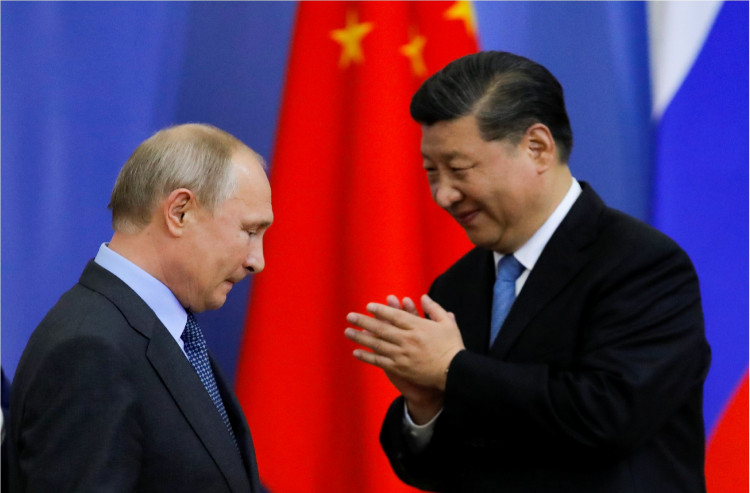The escalating geopolitical tensions between the West and Russia have taken a new turn, with the Kremlin alleging "unprecedented pressure" exerted by the United States and the European Union on China. This pressure is manifesting in the realm of financial transactions, as some Chinese banks are reportedly ceasing to process payments from Russia, adding a new layer of complexity to the global shipping crisis and straining the Sino-Russian economic alliance.
According to the Kremlin, this Western influence has led to a notable disruption in the financial interactions between Chinese banks and Russian businesses. Dmitry Peskov, the Kremlin spokesman, conveyed the gravity of the situation, stating, "Of course, unprecedented pressure from the United States and the European Union on the People's Republic of China continues, including in the context of relations with us." He further elaborated on the resilience of the Sino-Russian relationship, asserting, "This, of course, creates certain problems, but cannot become an obstacle to the further development of our trade and economic relations."
The Izvestia newspaper, citing market sources, has reported that institutions such as Ping An Bank and Bank of Ningbo have stopped processing payments in the Chinese currency from Russia, signaling a significant shift in the operational dynamics of these banks. Additional restrictions have been placed by other banks, further complicating the landscape for Russian enterprises seeking to navigate through these challenging waters.
Despite these hurdles, Peskov remains optimistic about overcoming these obstacles, highlighting the robust nature of the Sino-Russian economic partnership. "Russia and China could overcome such obstacles," he said, reflecting a steadfast commitment to sustaining and advancing bilateral trade relations amidst external pressures.
The backdrop of this financial discord is a series of Western sanctions targeting Russia in the wake of its military actions in Ukraine since February 2022. These sanctions have propelled Moscow to pivot its trade focus towards Asia, with China emerging as a crucial economic ally. Bilateral trade between the two nations has surged, with figures reaching $240.1 billion in 2023, marking a 26% increase from the previous year, according to Chinese customs data.
The use of the Chinese yuan for settling more than a third of all Russian exports, up from a mere 0.4% before the conflict, underscores the deepening economic ties between Moscow and Beijing. However, the Western sanctions have fundamentally altered the dynamics of international trade for Russia, restricting its ability to conduct transactions in traditionally dominant currencies like the dollar and euro.
As the situation unfolds, the global community watches closely, recognizing the intricate web of geopolitical, economic, and financial interests that influence the policies and decisions of major world powers. The current developments not only highlight the strategic significance of the Sino-Russian partnership but also underscore the profound impact of international diplomacy and sanctions on the landscape of global finance and trade.




